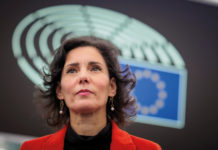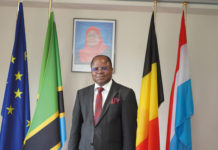Uncertainty about the future of mining revenues is urging Botswana to spending a new growth framework. The first expenditures made in the qualification of the workforce, in increasing competitiveness and in technical infrastructure.
All the components of a good welcome
Let us be reassuring from the start: good governance, very low level of corruption and generous provision of mineral resources already make Botswana one of the most stable and investor-friendly African economies.
However, the move towards greater independence from the mining sector requires some strategic changes.
Significant investments have already been made in health, education and infrastructure, but the activity of other economic sectors would not yet be able to offset the budget and trade deficit that would occur at the end of mining. This is evidenced by the significant decline in growth associated with the fall in diamond prices between 2009 and 2015.
Transforming the education system to meet economic needs
The 2017 annual resource conference gave the government an important warning that mining will no longer be as lucrative as before and that Botswana must develop alternative sources of income.
Three years earlier, a World Bank report on Botswana entitled “Skills for competitiveness and economic growth” already mentioned the country’s need to diversify its economy.
Economic diversification has been at the heart of national development plans for more than two decades, but recent warnings have nevertheless been heard by political and economic decision-makers who have developed a new five-year education strategy (See box: ETSSP 2015-2020).
Education, training and the quality of diplomas have therefore become top priorities on the political agenda. This is measured by public investment in this area, which today represents more than 9% of the country’s GDP.
Which new skills will be available?
Botswana aims at two things: diversifying its economy and creating a knowledge-based society capable of sustaining its development and providing a high standard of living for all.
The country therefore intends to equip its workforce with skills that meet employers’ needs, and to encourage high value-added skills such as software development, international  trade, management and, of course, technical training in industrial production.
trade, management and, of course, technical training in industrial production.
In parallel with the apprenticeship of the trades, personal skills are also taken into account as a lever for competitiveness. The programme therefore tends to improve certain values such as entrepreneurship, adaptability or the desire to learn among the youngest.
All these commitments were made at the right time and should brighten Botswana’s economic horizon very soon.
![[:fr]shutterstock_633601604 (1)[:]](https://perspectives-cblacp.eu/wp-content/uploads/2019/03/shutterstock_633601604-1-696x464.jpg)


